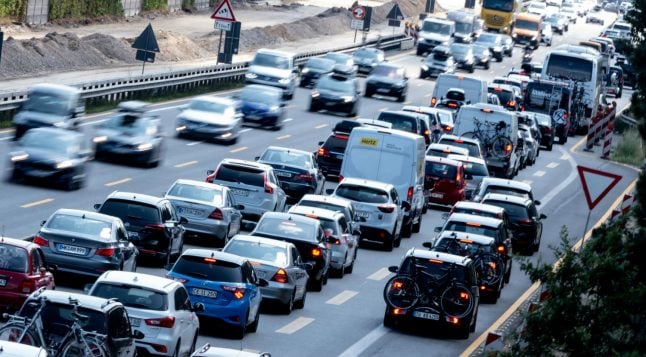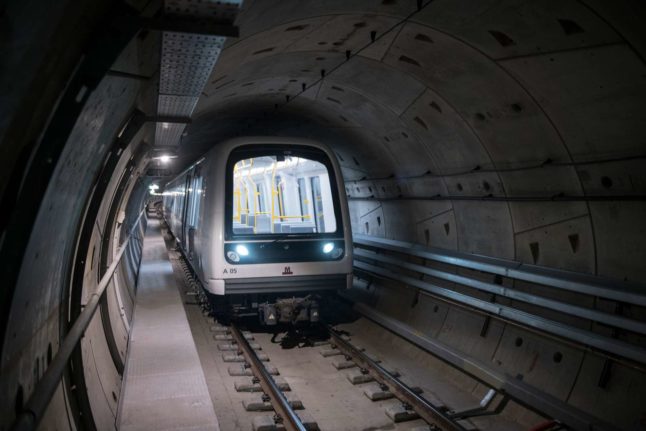An internal paper from the agency, seen by the Süddeutsche Zeitung, details what Germany would have to do in the transport sector to protect the climate.
The paper, which was drafted in June when the government was preparing its climate package but never became public, says the government would have to get rid of the commuter allowance and increase the price of fuel, among other measures.
According to the study, the tax on diesel – which has so far been tax-privileged – would have to rise by 70 cents to €1.19 per litre by 2030, while petrol should become 47 cents more expensive.
In addition, the toll imposed on trucks (LKW Maut) would have to rise sharply – and a speed limit of 120 kilometres per hour would have to be introduced on the Autobahn, a move that would be extremely controversial in car-loving Germany.
READ ALSO: How our readers feel about imposing a speed limit on Germany's Autobahn
The newspaper said the agency wants the Transport Ministry to draw up concrete proposals. In principle, however, the measures from the report are “suitable for achieving the climate targets in the transport sector”, a spokesman from the Environment Agency said.
Worst impact on environment
Of all Germany's sectors, transport has the worst climate record. While emissions have fallen since 1990 in the industrial, agriculture and construction sectors, they have been stagnating in transport.
The number of cars has increased, while freight traffic on the roads and the number of flights have also gone up.
 Photo: DPA
Photo: DPA
According to plans by the German government, climate-damaging emissions from traffic are to be reduced to 98 million tonnes of CO2 by 2030. At current rates emissions will stand at about 160 million tonnes in that year.
READ ALSO: 'The future is already here': How climate change is affecting Germany
The government wants to achieve this by promoting electric cars and alternative fuels. Rail travel is also to become cheaper, and the tax on airline tickets is to rise.
A gradual increase in the CO2 price will initially raise the price of fuel by three cents per litre. What exactly this will achieve for the climate is currently being calculated, but results are not expected until the beginning of the new year.
But according to the highest German environmental authority, this will by no means be enough.
“According to our estimates, there remains a climate protection gap of 20 to 30 million tonnes of greenhouse gases,” said Maria Krautzberger, head of the authority.
Climate package speed bumps
The government's “climate package”, a collection of four bills with policies including increases to the cost of air travel and the introduction of a carbon pricing system, was supposed to come into force at the beginning of next year.
However, it hit the rocks last week in the upper house of the German parliament, the Bundesrat, amid fears over financing and criticisms that it did not go far enough.
READ ALSO: What does Germany's planned climate protection package mean for you?
Representatives from Germany's federal states rejected proposals for a series of tax reforms, including a reduction in VAT on train tickets and temporary tax exemptions for the restoration of buildings.
Amid fears that the federal states would have to make up the lost revenues themselves, the upper house refused to pass the bill, which will now be subject to negotiations between the two chambers.
Other elements of the climate package were passed successfully on Friday.
READ ALSO: Tens of thousands of people in Germany rally against climate change
A surcharge on plane journeys of up to 2500 kilometres will be hiked by 74 percent to €13, while for longer journeys it will be raised to up to €60.
The carbon tax, which would later be incorporated into an EU emissions trading system, was also passed.



 Please whitelist us to continue reading.
Please whitelist us to continue reading.
Member comments